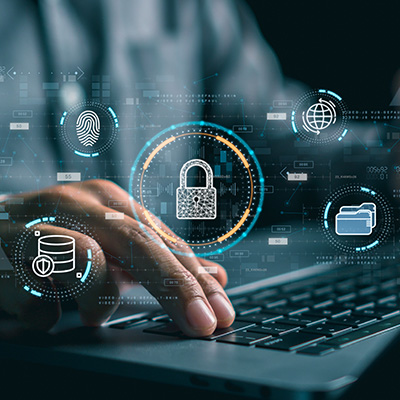Critical Security Measures for Data Privacy

In an individual sense, at least, it?s relatively simple. You don?t want to share anything more than what you need to. However, there is also something to be said for security and its relationship with privacy, and whether or not you should sacrifice one to maintain the other. You don?t have to pick one; in fact, you should be using security to protect your data privacy. Today, we?re investigating how you can do just that.
Use Strong, Unique Passwords
One great way to improve security is to practice using strong, unique passwords for all of your accounts. Your passwords should consist of upper and lower-case letters, numbers, and special symbols. A password manager makes it easy to generate and store complex passwords, calling them only when needed.
Enable Two-Factor (or Multi-Factor) Authentication
2FA or MFA uses an additional layer of security to further protect your data. If a hacker gets your password, 2FA or MFA will deny them access to your account unless they have the secondary factor for login, like biometric data or a hardware token. It?s a best practice to use this type of authentication whenever possible.
Keep Your Software and Devices Up-to-Date
Vulnerabilities give hackers more paths into your infrastructure, and they are most prevalent in outdated software and operating systems. Remember to patch your systems and keep them up-to-date so you don?t risk vulnerabilities lingering on your network for too long. In fact, implementing automatic updates could mitigate this risk entirely!
Protect Your Wireless Network
Even your wireless network could put your business at risk by allowing hackers in, particularly if you haven?t changed your default credentials and aren?t using strong encryption. For reference, WPA3 is the latest standard that you should strive for. We also recommend you hide the network SSID and use a strong network password for better security measures.
Be Careful on Public Wi-Fi
Public wireless networks are even more dangerous than your average Wi-Fi connection, particularly because you have little control over the security of the network in and of itself. You never know who could be looking at your activity. We recommend encrypting your network traffic with a virtual private network to keep your actions private.
Train Your Team
Staying in the know will help you better protect your infrastructure and yourself from cyberattacks. Additionally, we recommend that you not just train yourself, but train your employees to ensure they know how to at least identify telltale signs of phishing attacks.
Practice Proper Data Backup
Whether it?s from a cyberattack, hardware failure, accident, or natural disaster, data loss can strike at any time. Back up your important data so that you can get back in action even if a disaster shows its face.
Encrypt Your Communications
We recommend implementing encryption for all your communication methods, ensuring that end-to-end encryption is in place for messaging and email services at a bare minimum. Encryption ensures that your data is safe and unreadable by hackers even if they do manage to steal it.
Monitor Accounts for Potential Problems
We recommend that you keep an eye on your credit card statements and credit reports, just to make sure that there is no suspicious activity. If you detect problems, you can often prevent further damage by reacting sooner rather than later.
White Mountain IT Services can help your business stay safe from threats, and we can teach you a thing or two about data privacy, too. To learn more, call us today at (603) 889-0800.

